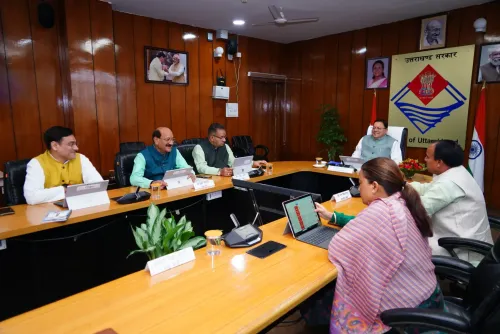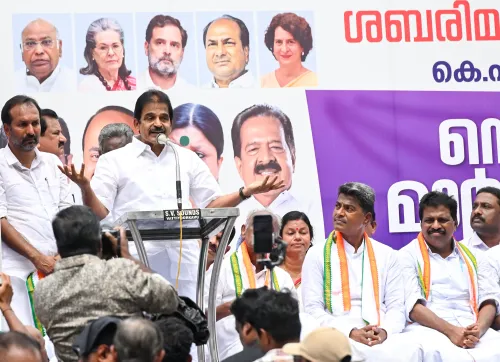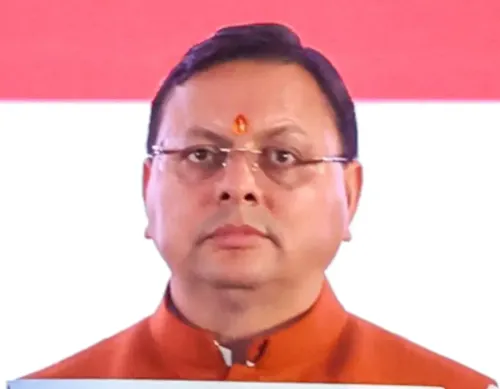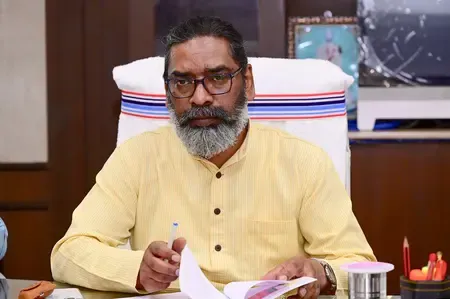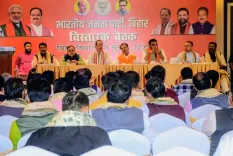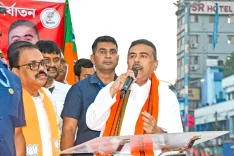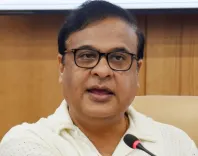Why Does Chandrababu Naidu Advocate for Learning Hindi While Honoring Polyglot Ex-PM Narasimha Rao?
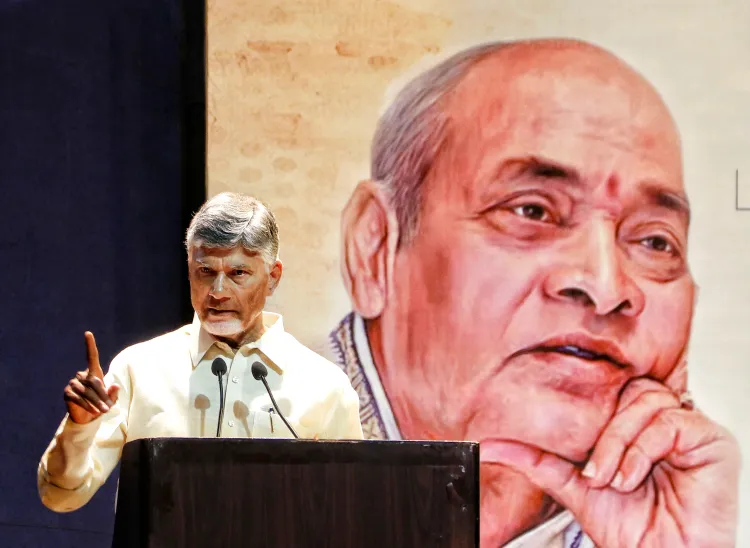
Synopsis
Key Takeaways
- Narasimha Rao mastered 17 languages, showcasing India's cultural diversity.
- His 1991 economic reforms transformed India's economy, moving away from the License Raj.
- CM Naidu calls for the importance of learning Hindi for national unity.
- Rao's legacy is a blueprint for visionary leadership and strategic courage.
- India's demographic dividend positions it for future global leadership.
Amaravati, July 15 (NationPress) The Chief Minister of Andhra Pradesh, N. Chandrababu Naidu, on Tuesday, advocated for the importance of learning Hindi while reminiscing about the remarkable linguistic prowess of former Prime Minister P. V. Narasimha Rao, who was proficient in 17 languages, including Hindi.
Naidu highlighted that Narasimha Rao, a proud Telugu, had acquired mastery over 17 languages, symbolizing India's diverse cultural fabric. He pointed out that this facet of Narasimha Rao's life serves as a motivating example today, amid increasing discussions about the necessity of learning Hindi.
"He was a master of 17 languages. Currently, there's a conversation around the relevance of learning Hindi. He not only embraced Hindi but various other languages, which contributed to his greatness," Naidu remarked during a lecture titled 'The Life and Legacy of P.V. Narasimha Rao' at the Prime Ministers’ Museum and Library in New Delhi.
The Chief Minister fondly remembered his respectful rapport with Narasimha Rao, rooted in the ethos of the Telugu states, calling him a beacon of balance and political wisdom. “I had a strong bond with him and understood him well. The Telugu community takes pride in him. He was a true Telugu Bidda who transformed our nation's fate,” Naidu stated.
He underscored that Rao was among the few leaders with firsthand experience in tackling India’s socio-economic and political hurdles, both prior to and following economic liberalization. “Born into a modest farming family, he exhibited extraordinary intelligence from an early age. He was a student leader, a freedom fighter, and a prolific scholar,” CM Naidu added.
Addressing the economic landscape of pre-1991 India, the Chief Minister described how the nation was trapped under the License Raj, with growth stagnating at 3-4 percent. By 1991, India faced a dire economic crisis, with foreign reserves plummeting to alarmingly low levels.
He likened Rao’s strategic bravery to that of Deng Xiaoping, who initiated China’s reforms in 1978, emphasizing that effective public policy combined with political will is a powerful recipe for leadership. Seizing the crisis as an opportunity, Rao initiated the historic 1991 economic reforms, fundamentally altering India's trajectory. “Today, we all benefit from the reforms he set in motion,” CM Chandrababu Naidu affirmed.
Commending Rao’s political savvy, the Chief Minister noted that despite leading a minority government, he accomplished the seemingly impossible by building consensus among socialists, communists, and capitalists. He emphasized Rao’s critical role in dismantling the License Raj, attracting foreign investment, and laying the groundwork for India’s IT revolution in the mid-1990s. “Thanks to his reforms, India overcame its balance of payments crisis, liberalized its economy, and paved the way for future growth,” he added.
Chandrababu Naidu reflected on the IT boom that followed economic reforms, attributing India’s first-mover advantage to Rao. He asserted India’s strength in its demographic dividend, stating, “While many nations are grappling with aging populations, India boasts a young demographic. I firmly believe that India will emerge as a global leader,” he said, highlighting that economic reforms, demographic advantages, and first-mover benefits in IT remain India’s significant assets.
The Chief Minister also cherished his association with former Prime Minister Atal Bihari Vajpayee, acknowledging his vision for enhancing India’s infrastructure and telecom framework. He recounted efforts to influence national highway policy, including a trip to Malaysia that motivated him to advocate for the Golden Quadrilateral Project, commencing with the Nellore-Chennai highway as a proof of concept. He also noted his role in the telecom revolution, which deregulated the sector and ensured mobile connectivity for every citizen.
He remarked that PM Modi’s leadership is characterized by instilling national pride, garnering global respect, and fostering robust foreign relations. Drawing parallels with other economies, the Chief Minister stated, "The aim is not just rapid growth, but equitable growth, where every citizen, region, and sector can share in the benefits of progress—aptly termed Sabka Sath, Sabka Vikas, Sabka Vishwas." He also mentioned that, as per the World Bank, India ranks among the top four nations for income equality, lifting over 17.1 crore Indians out of poverty in the past decade.
On this occasion, the Chief Minister honored Narasimha Rao’s son, P.V. Prabhakar Rao, and grandson, N.V. Subhash.

